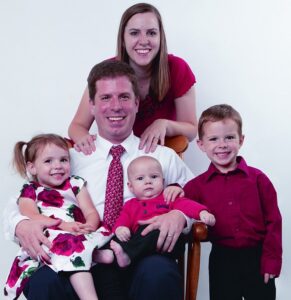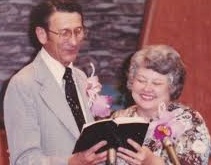August 15, 2017
No Comments
A missionary and his native helper were translating the New Testament. The verse they were working on was not clear to the missionary, but he hoped that his helper could somehow translate it anyway. He told the helper, “It might mean this. Or maybe it means that. Or it may mean this other.” Frustrated, the helper finally said, “Look, you just tell me what it means, and I’ll tell you how to say it in my language!” The problem was that the translator had not done his exegesis homework. Exegesis is defined as exposition, explanation or interpretation.
Proper exegesis is necessary in both Bible teaching and Bible translation. In teaching we can say, “I think this is what God is saying.” In translation, however, we are saying, “This is what God said.” Translation is an awesome task! Someone might say, “That’s too risky! I’ll play it safe and not get involved in translation.” Yes, it may be safe, but that leaves people groups in darkness without the light of God’s Word!
Someone might say, “Don’t interpret the verse, just translate the words.” It is true that we do not want to translate our “private interpretation,” but it is impossible to translate what we do not understand. Let me illustrate: If I translate into Spanish the sentence, “Bill went after Sue,” it depends on exactly what the phrase “went after” means. If we are talking about who left the building first, it would be: Bill salió después de Sue. If it means that Bill went to get Sue for church, it would be: Bill fue por Sue. If Sue left and Bill tried to catch up with her, we might say: Bill siguió a Sue. If Bill went after her to hurt her, it might translate: Bill atacó a Sue. If “went” is a euphemism for “died,” then we’d say: Bill murió después de Sue. You get the idea. The phrase “went after” has many possible meanings. The correct translation depends on the correct meaning.
Here are a few suggestions for arriving at the proper exegesis of a verse. First, we must look at it cautiously. We must ask, “Does it mean what I think it means?” It’s not good enough to say, “I’ve always thought it means this…” An example is the verse, “Abstain from all appearance of evil.” I have always heard it taught, “If it appears or seems to be evil, even if it isn’t, don’t do it.” (You might offend a weaker brother or damage your testimony.) That may be a good principle to follow, but it probably isn’t good exegesis. The idea may be more like: “Avoid evil every time it appears.”
Secondly, we must look at the verse with common sense. When there is an ambiguity (two or more possible interpretations) we might simply ask, “Which one makes sense according to what we know about God and His Word?” Common sense also tells us that we must look at the passage contextually. Is my interpretation consistent with the context of the passage?
Thirdly, it might be necessary to compare the word or verse with other verses. For instance, in 2 Kings 9:30 we are told that Jezebel “painted her face.” Did she put on makeup to appear more attractive? Did she put on war paint? Did she try to disguise herself? Perhaps in the receptor (target) language, like in English, one word serves for all these possible interpretations. But most likely you will be forced to choose between two or three words, depending on the purpose of the paint. But do we find this word anywhere else? Jeremiah 4:30 says, “And when thou art spoiled, what wilt thou do? Though thou clothest thyself with crimson, though thou deckest thee with ornaments of gold, though thou rentest thy face with painting, in vain shalt thou make thyself fair…” I am not sure what “paint” means in 2 Kings 9, but the paint in Jeremiah 4 (same Hebrew word) is clearly for adornment.
Fourthly, we might need to look at commentaries. Commentaries are not infallible, but let’s face it, we don’t know everything. Maybe someone knows something that we don’t. We should be very suspicious of our interpretation if we cannot find others that agree with us. If we refuse to listen and consider the opinion of others, what does that say about us? It says we are proud and arrogant. God resists the proud! We don’t need proud Bible teachers, let alone proud Bible translators! As there are very few expositional commentaries written by Bible-believing Baptists, we must use the commentaries with great care. We must also know the doctrinal position of any author. There is another type of commentary available to the translator. It is his companions in the ministry. Some of these are even experts in Biblical languages. They may live ten thousand miles away, but they can be consulted in seconds by email or cell phone.
Finally, we can look at the passage componentially. Unfortunately, there is not space to explain what this means. Our BBTI Principles of Bible Translation class teaches it and much more about the awesome work of Bible translation.
Just tell me what it means and I will tell you how to say it!

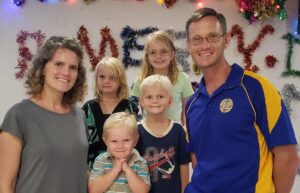
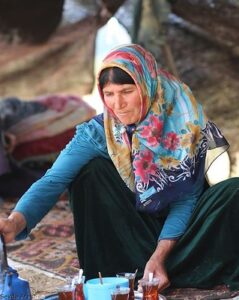
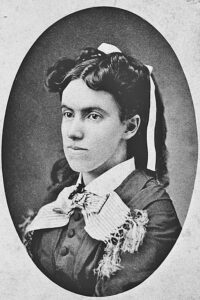
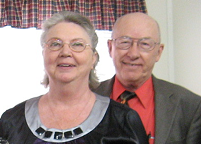 On May 10, 1968, the pastor’s wife and another lady from Beacon Hill Baptist Church in Dallas, Texas, were visiting new arrivals in their area. The house they planned to visit had whiskey bottles in the front window. The intended message was “Bad people live here; don’t mess with them.” The residents, Robert and Linda Huddleston, had bought the house and recently moved in. They had met at the Player’s Lounge where Linda was a bartender. The church ladies considered skipping this house, but they didn’t. Instead they won Bob and Linda to Christ!
On May 10, 1968, the pastor’s wife and another lady from Beacon Hill Baptist Church in Dallas, Texas, were visiting new arrivals in their area. The house they planned to visit had whiskey bottles in the front window. The intended message was “Bad people live here; don’t mess with them.” The residents, Robert and Linda Huddleston, had bought the house and recently moved in. They had met at the Player’s Lounge where Linda was a bartender. The church ladies considered skipping this house, but they didn’t. Instead they won Bob and Linda to Christ!